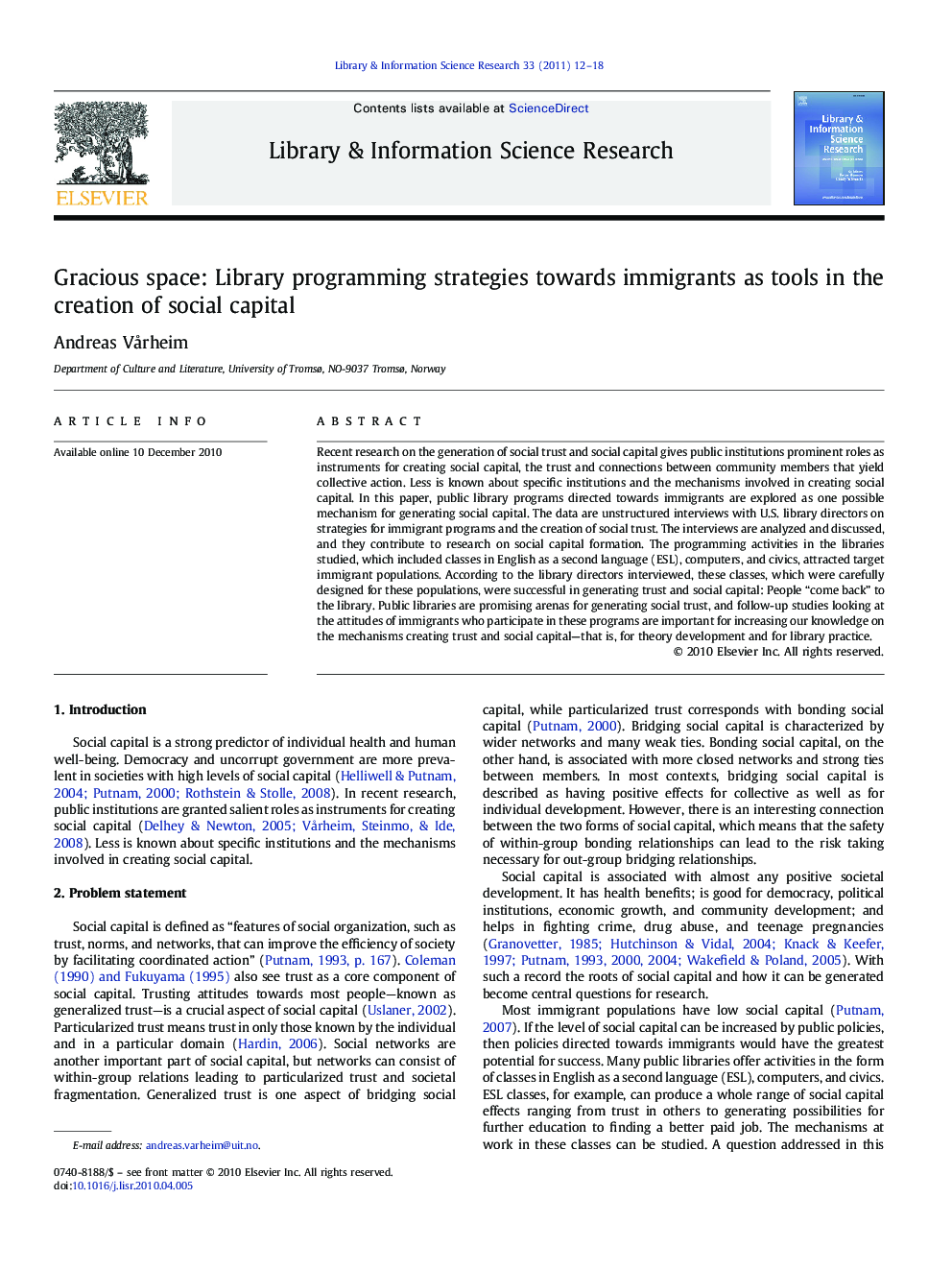| Article ID | Journal | Published Year | Pages | File Type |
|---|---|---|---|---|
| 1099335 | Library & Information Science Research | 2011 | 7 Pages |
Recent research on the generation of social trust and social capital gives public institutions prominent roles as instruments for creating social capital, the trust and connections between community members that yield collective action. Less is known about specific institutions and the mechanisms involved in creating social capital. In this paper, public library programs directed towards immigrants are explored as one possible mechanism for generating social capital. The data are unstructured interviews with U.S. library directors on strategies for immigrant programs and the creation of social trust. The interviews are analyzed and discussed, and they contribute to research on social capital formation. The programming activities in the libraries studied, which included classes in English as a second language (ESL), computers, and civics, attracted target immigrant populations. According to the library directors interviewed, these classes, which were carefully designed for these populations, were successful in generating trust and social capital: People “come back” to the library. Public libraries are promising arenas for generating social trust, and follow-up studies looking at the attitudes of immigrants who participate in these programs are important for increasing our knowledge on the mechanisms creating trust and social capital—that is, for theory development and for library practice.
